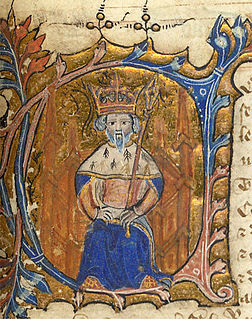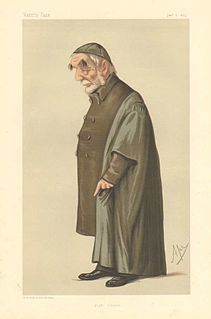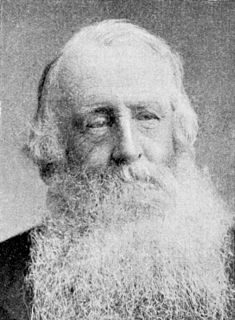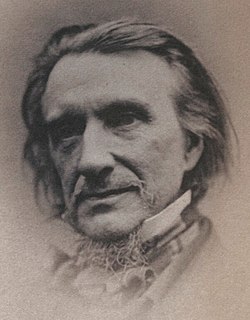Related Research Articles

Thomas Hobbes was an English philosopher, considered to be one of the founders of modern political philosophy. Hobbes is best known for his 1651 book Leviathan, in which he expounds an influential formulation of social contract theory. In addition to political philosophy, Hobbes contributed to a diverse array of other fields, including history, jurisprudence, geometry, the physics of gases, theology, and ethics, as well as philosophy in general.

William Shakespeare was an English playwright, poet and actor. He is widely regarded as the greatest writer in the English language and the world's greatest dramatist. He is often called England's national poet and the "Bard of Avon". His extant works, including collaborations, consist of some 39 plays, 154 sonnets, three long narrative poems, and a few other verses, some of uncertain authorship. His plays have been translated into every major living language and are performed more often than those of any other playwright. His works continue to be studied and reinterpreted.

Edward III, also known as Edward of Windsor before his accession, was King of England and Lord of Ireland from January 1327 until his death in 1377. He is noted for his military success and for restoring royal authority after the disastrous and unorthodox reign of his father, Edward II. Edward III transformed the Kingdom of England into one of the most formidable military powers in Europe. His fifty-year reign was one of the longest in English history, and saw vital developments in legislation and government, in particular the evolution of the English Parliament, as well as the ravages of the Black Death. He outlived his eldest son, Edward the Black Prince, and the throne passed to his grandson, Richard II.

Edward Bouverie Pusey was an English Anglican cleric, for more than fifty years Regius Professor of Hebrew at the University of Oxford. He was one of the leading figures in the Oxford Movement.

Edward Augustus Freeman was an English historian, architectural artist, and Liberal politician during the late-19th-century heyday of Prime Minister of the United Kingdom William Gladstone, as well as a one-time candidate for Parliament. He held the position of Regius Professor of Modern History at Oxford, where he tutored Arthur Evans; later he and Evans were activists in the Balkan uprising of Bosnia and Herzegovina (1874–1878) against the Ottoman Empire. After the marriage of his daughter Margaret to Evans, he and Evans collaborated on the fourth volume of his History of Sicily. He was a prolific writer, publishing 239 distinct works. One of his best known is his magnum opus, The History of the Norman Conquest of England. Both he and Margaret died before Evans purchased the land from which he would excavate the Palace of Knossos.

Thomas Rotherham, also known as Thomas (Scot) de Rotherham, was an English cleric and statesman. He served as bishop of several dioceses, most notably as Archbishop of York and, on two occasions as Lord Chancellor. He is considered a venerable figure in Rotherham, South Yorkshire, his town of birth.

Aymer de Valence, 2nd Earl of Pembroke was a Anglo-French nobleman. Though primarily active in England, he also had strong connections with the French royal house. One of the wealthiest and most powerful men of his age, he was a central player in the conflicts between Edward II of England and his nobility, particularly Thomas, 2nd Earl of Lancaster. Pembroke was one of the Lords Ordainers appointed to restrict the power of Edward II and his favourite Piers Gaveston. His position changed with the great insult he suffered when Gaveston, as a prisoner in his custody whom he had sworn to protect, was removed and beheaded on the instigation of Lancaster. This led Pembroke into close and lifelong cooperation with the King. Later in life, however, political circumstances combined with financial difficulties would cause him problems, driving him away from the centre of power.

Francis William Newman was an English classical scholar and moral philosopher, prolific miscellaneous writer and activist for vegetarianism and other causes.

Anne Conway was an English philosopher whose work, in the tradition of the Cambridge Platonists, was an influence on Gottfried Leibniz. Conway's thought is a deeply original form of rationalist philosophy, with hallmarks of gynocentric concerns and patterns that lead some to think of it as unique among seventeenth-century systems.

Sir John Frank Kermode, FBA was a British literary critic best known for his 1967 work The Sense of an Ending: Studies in the Theory of Fiction and for his extensive book-reviewing and editing.

Edward Granville Browne, FBA was a British Iranologist. He published numerous articles and books, mainly in the areas of history and literature.
Thomas Vaughan was a Welsh clergyman, philosopher, and alchemist, who wrote in English. He is now remembered for his work in the field of natural magic.

John Hastings, 2nd Earl of Pembroke,, was a fourteenth-century English nobleman and soldier. He also held the titles Baron Abergavenny and Lord of Wexford. He was born in Sutton Valence, the son of Laurence Hastings, 1st Earl of Pembroke, and Agnes Mortimer. His father died when John Hastings was a year old, and he became a ward of King Edward III while remaining in his mother's care. The King arranged for John to marry Edward's daughter Margaret in 1359, which drew John into the royal family. However, Margaret died two years later. John Hastings inherited his father's earldom, subsidiary titles and estates in 1368. The same year he made a second marriage, to Anne, daughter of Walter, Lord Mauny. The following year Pembroke began the career in royal service that was to continue for the rest of his life.
Simon Montacute was a medieval Bishop of Worcester and Bishop of Ely.

Christopher Gibbons was an English composer and organist of the Baroque period. He was the second son, and first surviving child of the composer Orlando Gibbons.
George Michael Sinclair Kennedy CBE was an English music critic and author who specialized in classical music. For nearly two decades he was the chief classical music critic for both The Daily Telegraph (1986–2005) and The Sunday Telegraph (1989–2005). A prolific writer, he was the biographer of many composers and musicians, including Vaughan Williams, Elgar, Barbirolli, Mahler, Strauss, Britten, Boult and Walton. Other notable publications include writings on various musical institutions, the editing of music dictionaries as well as numerous articles for The New Grove Dictionary of Music and Musicians and the subsequent Grove Music Online.

William Beale was an English royalist churchman, Master in turn of Jesus College, Cambridge and St John's College, Cambridge. He was subjected to intense attacks by John Pym from 1640, for an unpublished sermon he had given in 1635 supporting royal prerogative. According to Glenn Burgess, Pym's attention to Beale was because he exhibited a rare combination of Arminian or Laudian theological views with explicit political views tending to absolutism.
John Crayford was a Master of both Clare College, Cambridge and University College, Oxford, England. Martyn was unusual in being a Master of colleges at both the universities of Oxford and Cambridge. He was the only Master of University College to also have been a Master at a Cambridge college.

Charles Sanford Terry was an English historian and musicologist who published extensively on Scottish and European history as well as the life and works of J. S. Bach.
Sir Robert Coke of Caludon Castle, Coventry, Huntingfield, Suffolk and Epsom, Surrey was an English politician.
References
- ↑ Carr, William, University College , Routledge, 1998. ISBN 978-0-415-18632-2. Chapter VIII, From the Revolution to 1745.
- ↑ Darwall-Smith, Robin, A History of University College, Oxford. Oxford University Press, 2008. ISBN 978-0-19-928429-0.
- ↑ Cockayne, Emily (2007). Hubbub: Filth Noise & Stench in England. Yale University Press. p. 46. ISBN 978-0-300-13756-9.
- ↑ "Farrer, Edward (FRR647E)". A Cambridge Alumni Database. University of Cambridge.